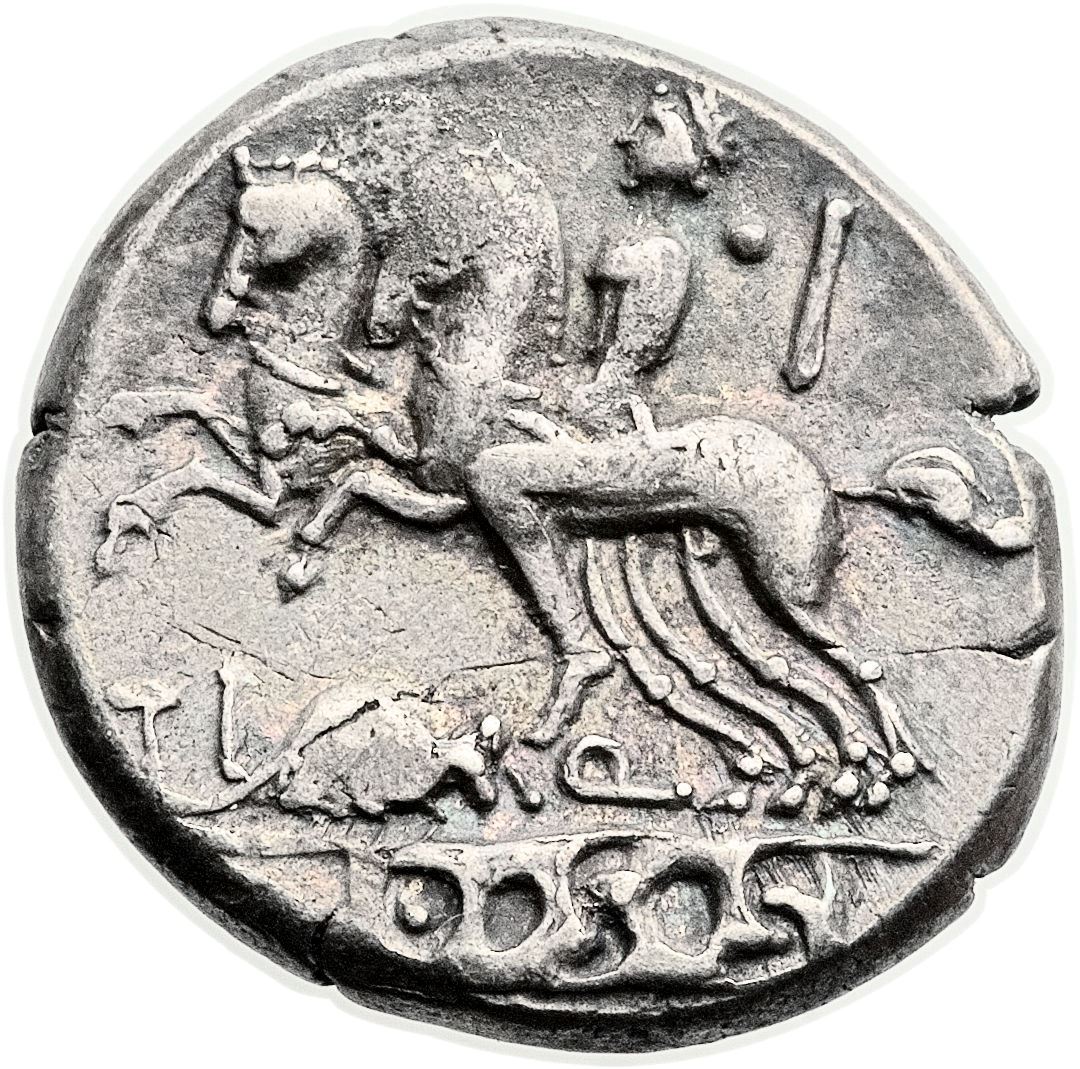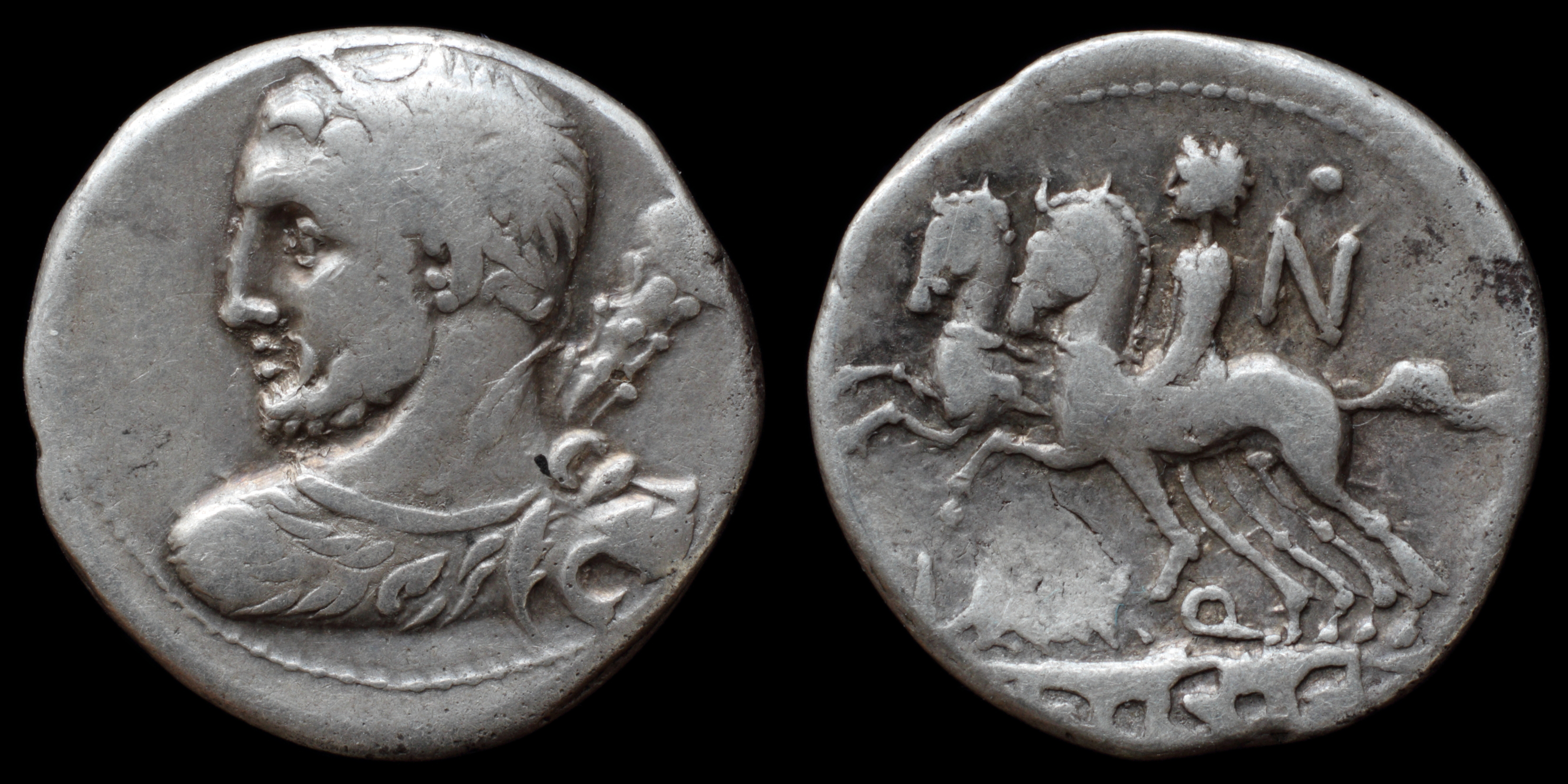Ti. Quinctius or Quinctilius was one of the moneyers for the year 112-111 BC. He is not otherwise known.
Gens Quinctia, sometimes written Quintia, was a patrician family at Rome. Throughout the history of the Republic, its members often held the highest offices of the state, and it produced some men of importance even during the imperial period. For the first forty years after the expulsion of the kings the Quinctii are not mentioned, and the first of the gens who obtained the consulship was Titus Quinctius Capitolinus Barbatus in 471 BC; but from that year their name constantly appears in the Fasti.^
Gens Quinctilia, also written Quintilia, was a patrician family at Rome, dating from the earliest period of Roman history, and continuing well into imperial times. Despite its great antiquity, the gens never attained much historical importance. The only member who obtained the consulship under the Republic was Sextus Quinctilius Varus in 453 BC. The gens produced numerous praetors and other magistrates, but did not obtain the consulship again for over four hundred years.
Gens Quinctia, sometimes written Quintia, was a patrician family at Rome. Throughout the history of the Republic, its members often held the highest offices of the state, and it produced some men of importance even during the imperial period. For the first forty years after the expulsion of the kings the Quinctii are not mentioned, and the first of the gens who obtained the consulship was Titus Quinctius Capitolinus Barbatus in 471 BC; but from that year their name constantly appears in the Fasti.^
Gens Quinctilia, also written Quintilia, was a patrician family at Rome, dating from the earliest period of Roman history, and continuing well into imperial times. Despite its great antiquity, the gens never attained much historical importance. The only member who obtained the consulship under the Republic was Sextus Quinctilius Varus in 453 BC. The gens produced numerous praetors and other magistrates, but did not obtain the consulship again for over four hundred years.

(1)
Ti. Quinctius

Obverse: laureate bust of Hercules left, wearing lion-skin and holding club
Reverse: Desultor galloping left, his second horse at his side; TI rat (control symbol) Q / • over N / D•S•S incuse on tablet
Diameter:
17 mm
Die Orientation: -
Weight: 3.8 g
Die Orientation: -
Weight: 3.8 g
D.S.S. is believed to stand for "de Senatus sententia," referring to the Senate's role in providing the Ludi Apollinares - equestrian games in honor of Apollo. It was at these games that desultors, bridles and whip in hand, mounted two bare-backed horses, riding one of them and leading another, and then at full gallop leaped alternately from one horse to the other many times, changing positions with amazing agility. Young Romans, some of the highest rank, not content with driving the biga or quadriga, carried these exercises to the utmost excess. The Roman desultor wore a pileus and by managing two horses honored the memory of Pollux representing his deceased (missing) brother Castor, as well as himself.
Crawford 297/1b, SRCV I 174, RSC I Quinctia 6, Sydenham 563
